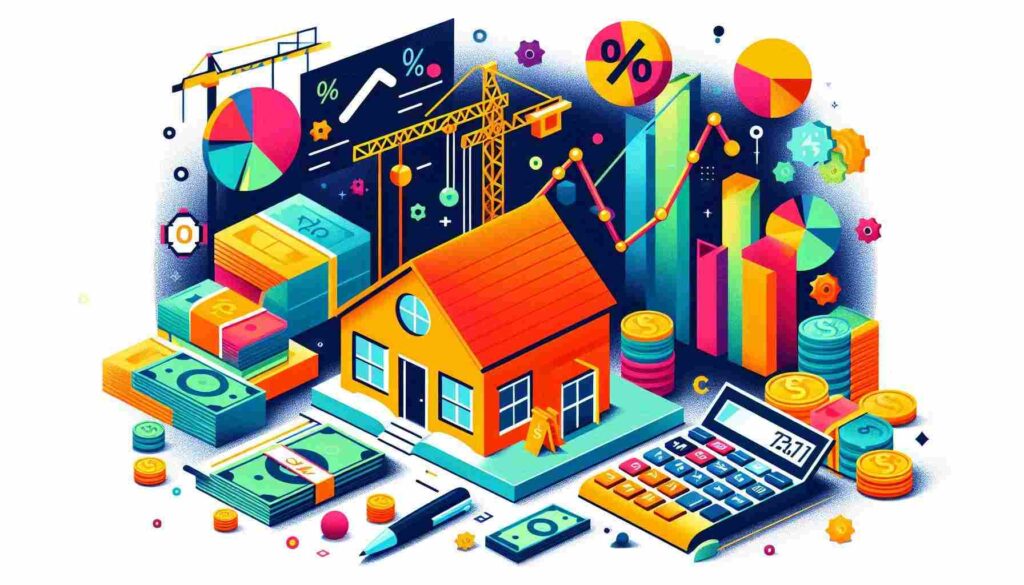Imagine embarking on your dream home construction project, only to be blindsided by unexpected financing costs. Construction loan interest rates can make or break your budget, influencing the overall cost of bringing your vision to life. Whether you’re a first-time builder or a seasoned property developer, understanding these rates is crucial for smart financial planning.
Construction loans are a unique beast in the world of financing. Unlike traditional mortgages, they’re designed to fund the building process itself, with interest rates that can fluctuate based on various factors. But don’t worry, we’re here to demystify the world of construction loan interest rates and help you navigate the financial landscape with confidence.
Key Takeaways:
- Construction loan interest rates are typically higher than traditional mortgage rates
- Rates can vary based on factors like credit score, loan-to-value ratio, and project type
- Understanding these rates is essential for accurate budgeting and financial planning
- Shopping around and comparing lenders can help you secure the best possible rate

What Are Construction Loan Interest Rates?
Construction loan interest rates are the costs associated with borrowing money to fund a building project. These rates are usually variable, meaning they can change over the course of the loan term. Typically, they’re based on a benchmark rate, such as the prime rate, plus a margin determined by the lender.
It’s important to note that construction loan interest rates are generally higher than those for traditional mortgages. This is because construction loans are considered riskier for lenders due to the uncertainties involved in the building process. However, the exact rate you’ll receive depends on various factors, including your creditworthiness, the loan-to-value ratio, and the specifics of your construction project.
Factors Affecting Construction Loan Interest Rates
Several key factors can influence the interest rate you’ll be offered on a construction loan. Understanding these can help you better prepare and potentially negotiate more favorable terms:
Credit Score: Your credit score is a crucial factor in determining your interest rate. A higher credit score generally translates to a lower interest rate, as it demonstrates to lenders that you’re a responsible borrower.
Loan-to-Value (LTV) Ratio: This ratio compares the amount of the loan to the projected value of the completed property. A lower LTV ratio typically results in a better interest rate, as it represents less risk for the lender.
Down Payment: Making a larger down payment can often lead to a more favorable interest rate. It shows the lender that you have a significant stake in the project and are less likely to default on the loan.
Project Type and Complexity: The nature of your construction project can affect your interest rate. Simple, straightforward projects may be viewed more favorably than complex or unusual designs.
Market Conditions: Broader economic factors, such as inflation rates and Federal Reserve policies, can impact construction loan interest rates.

Types of Construction Loans and Their Interest Rates
There are several types of construction loans available, each with its own interest rate structure:
Construction-to-Permanent Loans: These loans cover both the construction phase and transition into a permanent mortgage once the building is complete. They typically offer slightly lower interest rates compared to standalone construction loans.
Construction-Only Loans: These loans only cover the construction phase and must be paid off or refinanced once the project is complete. They often have higher interest rates due to their short-term nature.
Renovation Loans: Designed for major home improvements, these loans usually have interest rates similar to traditional mortgages, especially if you have substantial equity in your existing property.
Owner-Builder Loans: If you’re acting as your own general contractor, you might qualify for an owner-builder loan. These can have higher interest rates due to the perceived increased risk.
How to Secure the Best Construction Loan Interest Rate
Now that you understand the factors influencing construction loan interest rates, let’s explore some strategies to help you secure the best possible rate:
Improve Your Credit Score: Before applying for a construction loan, take steps to boost your credit score. Pay down existing debts, correct any errors on your credit report, and avoid taking on new credit.
Save for a Larger Down Payment: The more you can put down upfront, the less risky you appear to lenders. Aim for a down payment of at least 20% of the project cost if possible.
Shop Around: Don’t settle for the first offer you receive. Get quotes from multiple lenders, including banks, credit unions, and online lenders. Compare not just the interest rates, but also the fees and terms associated with each loan.
Consider a Construction-to-Permanent Loan: If you plan to live in the home long-term, this type of loan can offer more favorable rates and save you money on closing costs by combining the construction loan and mortgage into one product.
Work with an Experienced Contractor: Lenders often view projects managed by reputable, experienced contractors as less risky. This can potentially lead to better interest rates.
Provide Detailed Plans and Budgets: The more thorough and well-planned your construction project appears, the more confidence lenders will have in its success. This can translate to more favorable loan terms.
As we continue to explore the world of construction loan interest rates, it’s important to remember that these rates are just one piece of the puzzle. In the next section, we’ll delve into how these rates impact your overall project costs and discuss strategies for managing interest expenses throughout the construction process.

The Impact of Interest Rates on Your Construction Project
Let’s face it, interest rates can make a huge difference in your overall construction costs. Even a small change in the rate can add up to thousands of dollars over the life of your loan. For example, on a $300,000 construction loan, just a 0.5% increase in interest rate could mean paying an extra $1,500 in interest during a 12-month construction period. That’s money that could’ve gone towards that fancy kitchen island you’ve been eyeing!
But don’t let these numbers scare you off. Understanding how interest rates impact your project can help you make smarter financial decisions. Here’s a pro tip: consider making interest-only payments during the construction phase. This can help keep your monthly expenses lower while you’re juggling other construction costs.
Managing Interest Expenses During Construction
Alright, so you’ve secured your loan and construction is underway. Now what? Well, it’s time to put on your financial wizard hat and start managing those interest expenses like a boss. Here are some strategies to keep more money in your pocket:
- Draw funds only as needed: Remember, you’re typically only charged interest on the amount you’ve drawn from your loan. So, resist the urge to withdraw all the funds at once.
- Stick to your timeline: Delays in construction can mean more interest paid. Work closely with your contractor to keep things on schedule.
- Consider a rate lock: If you’re worried about rates rising, ask your lender about a rate lock option. It might cost a bit upfront, but could save you in the long run.
- Make extra payments if possible: If you come into some extra cash, consider making additional payments to reduce your principal and save on interest.
Navigating Market Fluctuations and Economic Factors
Let’s be real, the world of finance can be as unpredictable as a game of Monopoly with your ultra-competitive cousin. Economic factors like inflation, job market trends, and global events can all impact construction loan interest rates. Keep an eye on these trends, but don’t let them paralyze you. Remember, timing the market perfectly is nearly impossible, even for the pros.
If you’re feeling unsure, consider consulting with a financial advisor who specializes in construction loans. They can help you understand how current market conditions might affect your specific situation. And hey, sometimes their insights can be worth their weight in gold (or at least in lumber, given current prices!).
At the end of the day, building your dream home or tackling that major renovation project is an exciting journey. Yes, construction loan interest rates are an important part of the equation, but they’re just one piece of the puzzle. Focus on creating a solid plan, working with trusted professionals, and making informed decisions based on your unique circumstances.
Remember, knowledge is power when it comes to construction financing. By understanding how interest rates work and implementing smart strategies to manage your costs, you’re setting yourself up for success. So go ahead, take that first step towards making your construction dreams a reality. With the right preparation and a bit of financial savvy, you’ll be well on your way to creating the space you’ve always imagined – without breaking the bank on interest payments.
Frequently Asked Questions
1. What’s the typical interest rate range for construction loans?
Construction loan interest rates typically range from about 4% to 12%. However, these rates can vary widely based on factors like your credit score, the lender, and current market conditions. It’s not uncommon for construction loan rates to be 1-2% higher than traditional mortgage rates due to the increased risk for lenders.
2. How often do interest rates change on a construction loan?
Most construction loans have variable interest rates that can change monthly or quarterly. These rates are often tied to a benchmark like the prime rate or LIBOR. Some lenders offer rate locks for a fee, which can protect you from rate increases during the construction period.
3. Do I have to make full payments during the construction phase?
Typically, no. Many construction loans only require interest-only payments during the construction phase. This can help keep your monthly expenses lower while you’re dealing with other construction costs. Once construction is complete, the loan either becomes due in full or converts to a traditional mortgage with principal and interest payments.
4. Can I get a fixed-rate construction loan?
Fixed-rate construction loans are less common, but they do exist. They’re more often found in construction-to-permanent loans, where the rate is locked in for both the construction phase and the subsequent mortgage. These loans can offer more predictability but may come with higher interest rates or fees.
5. How does my credit score affect my construction loan interest rate?
Your credit score plays a significant role in determining your interest rate. Generally, a higher credit score (700+) can help you secure lower rates. For example, someone with a credit score of 760 might get a rate that’s 0.5% to 1% lower than someone with a score of 660. This difference can translate to substantial savings over the life of the loan.
6. What’s the difference between interest rates on construction loans and traditional mortgages?
Construction loan interest rates are typically higher than traditional mortgage rates. This is because construction loans are considered riskier for lenders due to the uncertainties involved in the building process. The difference can range from 0.5% to 2% or more, depending on various factors including the lender and your financial profile.
7. Can I refinance my construction loan to get a better interest rate?
Yes, refinancing a construction loan is possible, especially if you have a construction-only loan. Many borrowers choose to refinance into a traditional mortgage once construction is complete. This can often result in a lower interest rate. However, keep in mind that refinancing involves closing costs, so you’ll need to weigh these against the potential savings from a lower rate.
8. How do down payments affect construction loan interest rates?
Generally, a larger down payment can help you secure a lower interest rate on your construction loan. This is because a bigger down payment reduces the lender’s risk. For example, putting down 25% instead of 20% might shave 0.25% off your interest rate. Plus, a larger down payment can also help you avoid private mortgage insurance (PMI), further reducing your overall costs.
9. Are there any government-backed construction loan programs with competitive rates?
Yes, there are government-backed options that can offer competitive rates. The FHA’s 203(k) loan program is designed for home renovation projects and can offer rates similar to traditional FHA loans. For rural areas, the USDA has construction-to-permanent loan programs that can offer very competitive rates for qualified borrowers. VA construction loans are also available for eligible veterans and can offer favorable terms.
10. How do interest rates on construction loans for commercial projects differ from residential ones?
Commercial construction loan interest rates are typically higher than residential rates, often by 0.5% to 2% or more. This is due to the perceived higher risk and complexity of commercial projects. Commercial loans also often have shorter terms and may require a larger down payment. However, rates can vary widely based on the specific project, the borrower’s experience, and the current state of the commercial real estate market.






